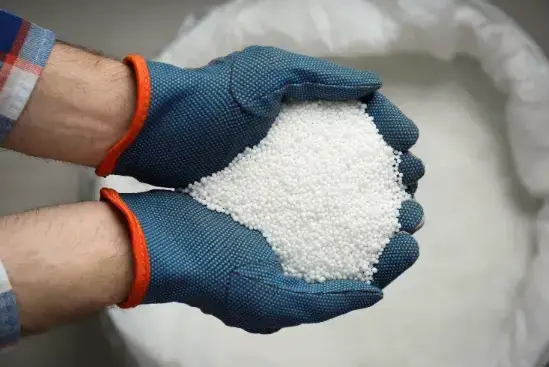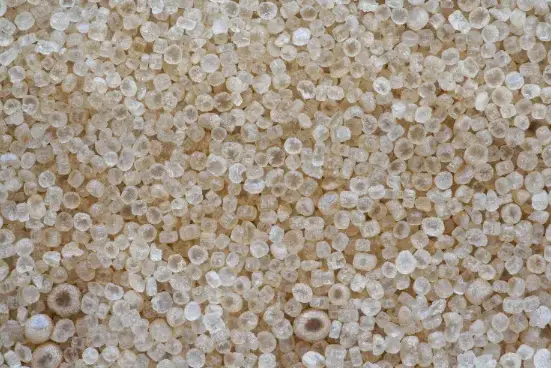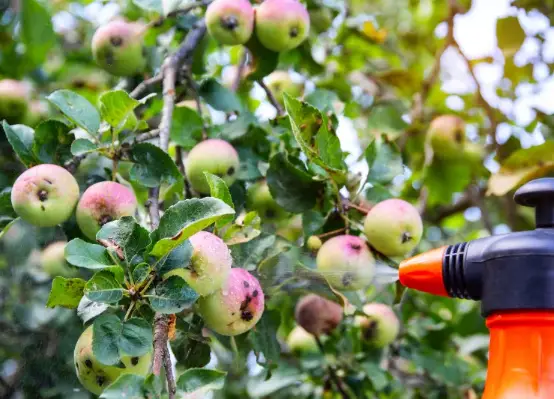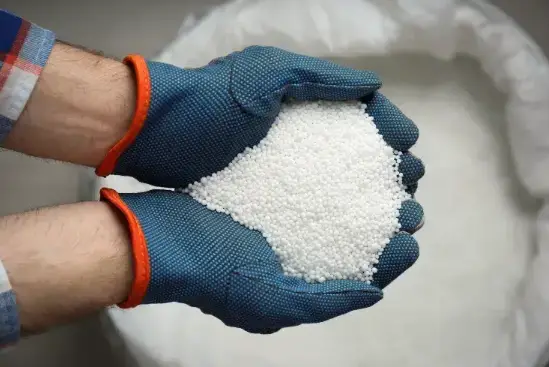Ammonium sulfate is a very useful fertilizer for both amateurs and professionals in agriculture. This fertilizer serves as an excellent stimulant for the development of vegetables and fruit trees, thanks to its contribution of sulfur and ammoniacal nitrogen. What are its properties? How do you properly use ammonium sulfate? Read on to find out!

What is Ammonium Sulfate?

Ammonium sulfate is a crystalline salt commonly used in agriculture. Composed of 21% ammoniacal nitrogen and 60% sulfuric anhydride, it is a water-soluble solution. The compound sulfuric anhydride is a form of sulfur oxide. Ammonium sulfate is also available in different forms, such as granules, crystals, or a soluble powder that is perfect for fertilizing by irrigation or fertigation.

This fertilizer can be used for cereals and various other crops, but it’s important to note that ammonium sulfate is not compatible with organic farming. It is important to follow regulations related to ammonia emissions, as ammonia is a chemical that releases fine particles.
Properties of Ammonium Sulfate
- Color: Colorless to grayish white
- Purity: More than 98% pure
- Sulfur Input: Contributes sulfur to the soil
- Nitrogen Supply: Provides ammoniacal nitrogen, which is unlikely to be leached during heavy rain
- Compost Activator: Helps with the decomposition of compost
- Foliar Fertilizer: Can be applied to plant leaves
- Water Hardness: Helps to correct water hardness in certain areas
What Crops Can Ammonium Sulfate Benefit?
Ammonium sulfate is primarily used to compensate for sulfur deficiencies in crops like rapeseed and potatoes. It is beneficial for the following crops:
- Sugar cane
- Rice
- Coffee
- Bananas
- Soy
- Citrus
- Tea
- Pineapple
For beginner gardeners, ammonium sulfate can be used in the orchard to boost the growth of fruit trees, and in the vegetable garden to stimulate the production of vegetables such as:
- Potatoes
- Radishes
- Turnips
- Cabbages
This acidifying fertilizer is especially effective for improving soil conditions in calcareous and alkaline soils. Fertilizing during winter is recommended for crops such as:
- Vines
- Almonds
- Fruits
How to Use Ammonium Sulfate?

Be cautious with the application, as dosage is important. Always refer to the instructions on the packaging or seek advice from a specialist to avoid excess nitrogen, which could lead to excessive vegetative growth. For example, applying 45g/m² in the spring can stimulate plant growth for several weeks.
Safety Precautions:
- Wear protective gear, including goggles and a dust mask.
- Wash your hands thoroughly after handling ammonium sulfate.
- Keep out of reach of children to ensure safety.
Ammonium sulfate is a powerful tool for gardeners and farmers alike. By using it correctly, you can boost plant growth and improve the yield of a variety of crops.



